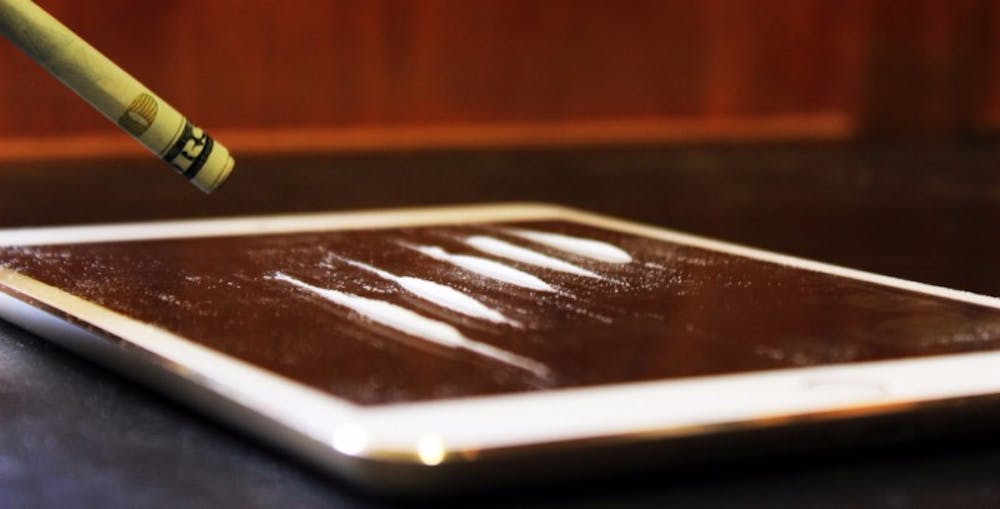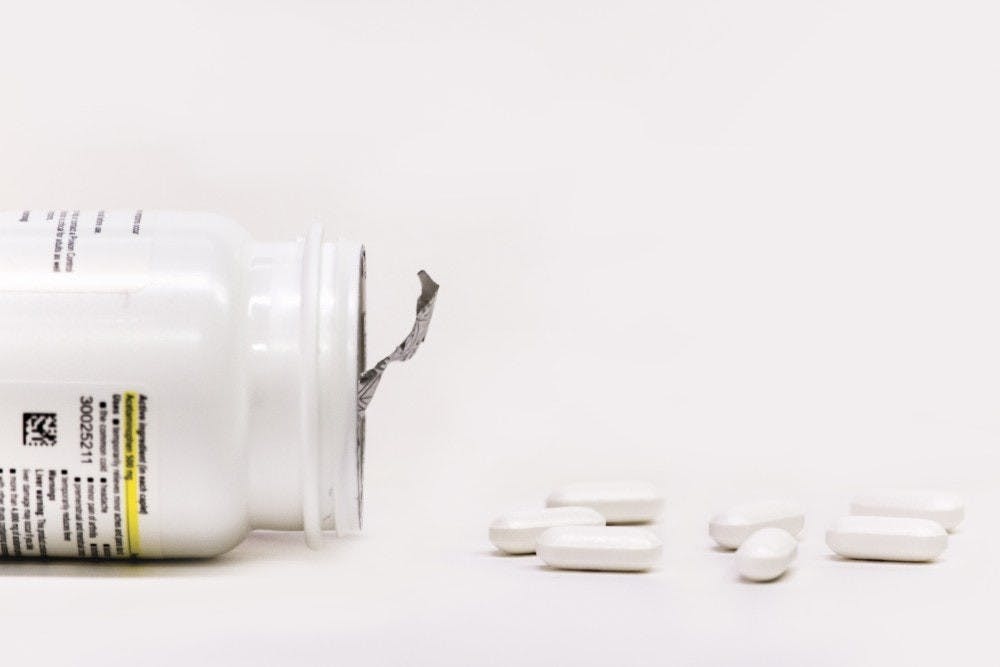It’s a Friday night at a Temple University frat party. It smells like sweat and beer, the humidity leaves stains on black crop tops, and everyone’s downing shots of Bankers. There’s a 10-minute line by the bathroom because inside, girls are snorting cocaine off the sink.
Gabe Logrono, a Temple sophomore, explained that this is what a typical night out looks like. But now, there’s a danger that wasn’t present before. A nightmare that’s plaguing the nation and all of Philadelphia, and many students ignore it: the opioid crisis.
We have to face the facts when it comes to recreational use of lifestyle drugs. Cocaine was never really cool to begin with, but now it’s more deadly than ever.
“I just feel like people think of college students [as], you know, you party and you do drugs and you experiment,” Logrono said. “I don’t really think people identify something like an opioid crisis.”
In early May, just a few weeks after Penn’s Spring Fling, the University sent an advisory email to students indicating that there was evidence of counterfeit oxycodone and cocaine that had been laced with fentanyl — a highly addictive painkiller — in the Philadelphia region.

“Lacing or contamination is a risk at all times with any use of illegal drugs, or with the use of pharmaceutical medications not obtained with a prescription from a pharmacy.” Noelle Melartin, the Director of the Office of Alcohol and Other Drug Program Initiatives elaborated in an emailed statement. “It’s important to understand that there is no immunity from that risk.”
Logrono noted that some of his friends have done cocaine that was laced, and nearly overdosed. Temple is only three miles away from our own campus. In other words, Penn isn’t immune to the opioid crisis.
Fortunately, the administration has taken some steps to avoid opioid-related deaths on campus. Penn’s Medical Emergency Response Team is now in possession of Narcan, a drug that can treat narcotic overdose. The University also offers a variety of other resources, including a Medical Amnesty Policy, which allows students to seek treatment for excess alcohol or drug consumption without legal consequences.

Cocaine culture — selling, using, and distributing — is quite prominent at Penn, particularly in wealthy social circles. And at a school where more students come from the top 1 percent of wealth than the bottom 60, lifestyle drugs are all too common. Some are reliant on drugs to stay focused, and others use them recreationally.
Often, the opioid epidemic is thought of as a problem limited to people of low-income backgrounds. But now, these highly addictive painkillers are making their way into drugs that Penn students frequently use. Drugs at Penn are far more unsafe than they were before.
“I would say because the same people that use coke use, at least in my experience, Adderall, Xans, Molly, Percocets — every every kind of thing you can imagine,” Logrono said. “I know people that sell all those things. You know if you’re looking to buy coke from someone, odds are, that person sells opioids.”
In an interview with The New York Times, the Philadelphia Health Commissioner Tom Farley put the statistics on this issue into context: “We had an estimated 1,200 overdose deaths in Philly in 2017,” he said. “To put that in perspective, AIDS deaths at the worst of the epidemic were 935. We have the highest overdose rate by far of any of the 10 biggest cities in America.”

What people are less likely to recognize is the impact that this National Public Health Emergency might have on college students in the Philadelphia area. Just last year, two Temple students died from unidentified drug overdoses. Yet, despite the rapidly changing drug culture, many have persisted in use of stimulants that may be laced.
We all know that college is the ideal time to experiment and try new things; however, you have to face the facts of the world that we’re living in today. After all, this isn’t our parents’ Penn.
Party drugs can serve as a status symbol, but they don’t make you any more interesting. As much as we joke about the “scene,” nobody is impressed by your coke habit. Now it might have even more serious, life-threatening consequences.
Even if you yourself aren’t a drug user, one of Penn’s biggest issues is blind complacency with elements of its toxic culture. You aren’t doing your friends any favors by ignoring their dangerous behavior. Staying away from lifestyle drugs and encouraging your friends to do the same is the only sensible choice. We must acknowledge that the opioid epidemic isn’t far from us at all. In fact, we’re living in it.
In the event of an emergency:
Penn Police: 215-573-3333 or 511 from any campus phone
Student Health Services: 215-746-3535
Counseling & Psychological Services (CAPS): 215-898-7021
Office of Alcohol & Other Drugs (AOD): 215-573-3525
HELP Line: 215-573-HELP (4357)

ISABELLA SIMONETTI is a College sophomore from New York studying English. Her email address is simonetti@thedp.com.
The Daily Pennsylvanian is an independent, student-run newspaper. Please consider making a donation to support the coverage that shapes the University. Your generosity ensures a future of strong journalism at Penn.
Donate






Most Read
Penn confirms five additional student visa revocations, bringing total to eight
Penn faculty criticize lack of University transparency after student visa revocations
SEPTA announces fare increase, service reduction in response to increasing financial challenges
More Like This